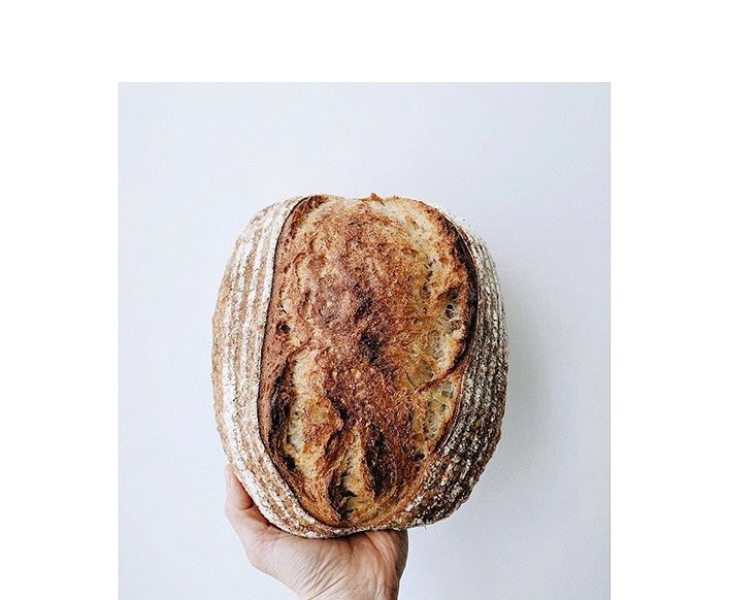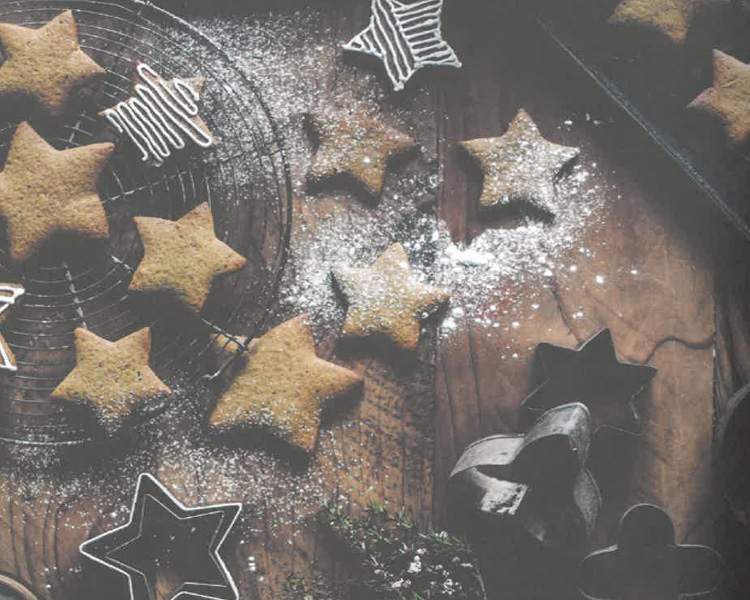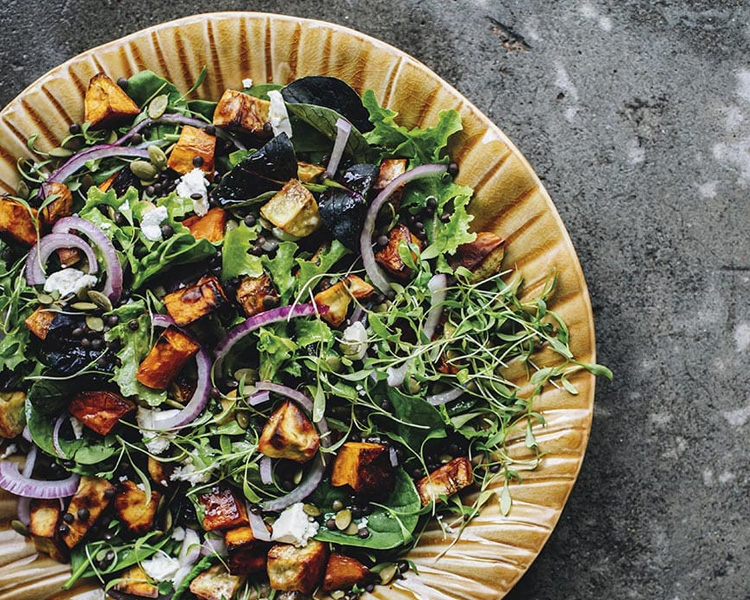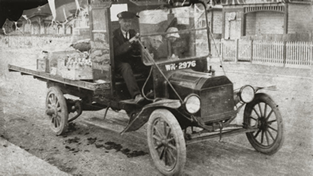Sourdough is a type of bread made without commercial yeast, and instead uses a natural culture from flour and water called a ‘starter’. When flour and water are mixed lactobacilli bacteria combine with the wild, airborne yeast in the surrounding environment and that mixture ferments and produces gas. When added to bread dough, this mixture is what makes the bread rise and offers the bread a complex flavour and smell – tangy and acidic.
Sourdough bread can be traced back to Ancient Egyptian civilisations from where it gradually spread throughout Europe and the Middle East and it wasn’t until the 1800’s when it was introduced to America. Current day, many artisan bakers are experimenting with textures and flavours and producing delicious and nutritious sourdough bread.
The fermentation process of sourdough bread makes it easier to digest that standard, yeasted loaves of bread. The phytic acid in the wheat inhibits enzymes which are needed for our bodies to breakdown the proteins and starch in bread. The lactobacilli and wild yeast found in sourdough neutralise the phytic acid while the dough slowly ferments which enables us to more easily digest sourdough bread. This process also makes other nutrients available to us including calcium, magnesium, iron and zinc.
You can easily make sourdough bread at home with only a few simple ingredients – flour, water, salt and sourdough starter. Sourdough starters can be made from scratch and takes around 7-10 days. Some bakeries also offer people some of their own starter which can be used to make bread straight away.
There are many sourdough bread recipes found online as well as many recipe books. Some recommended books are:
The Tivoli Road Baker, by Michael James with Pippa James – available here
Tartine Bread, By Chad Robertson
The Sourdough School, by Vanessa Kimbell
Moore Wilson’s Fresh also stock a range of sourdough bread from local bakeries including:







